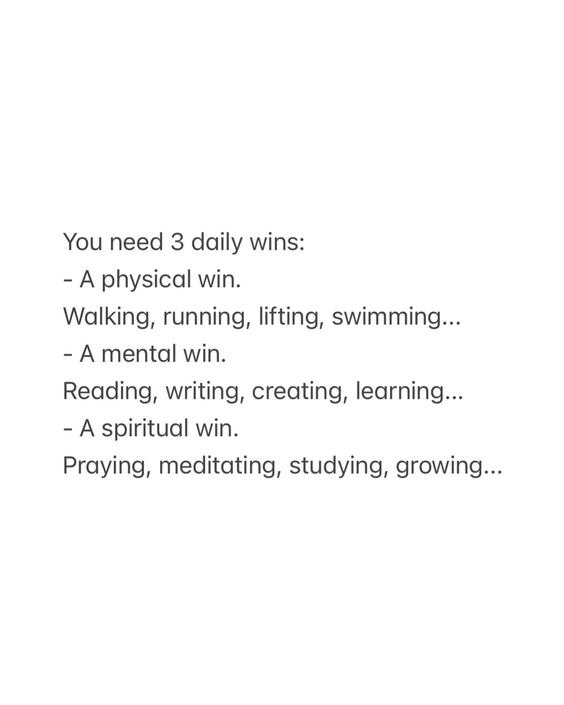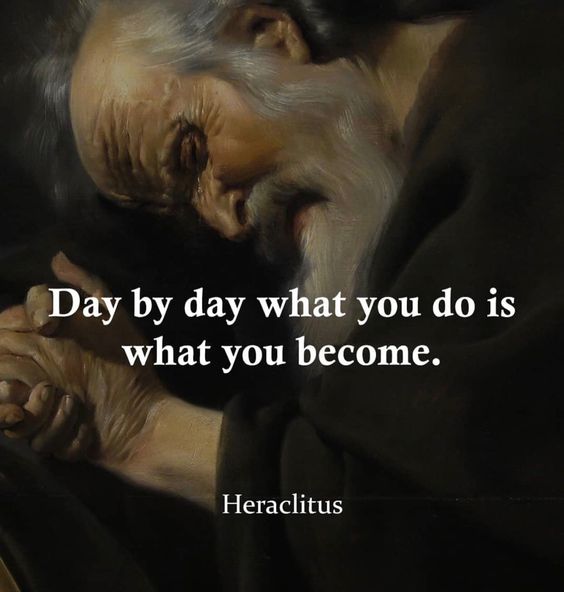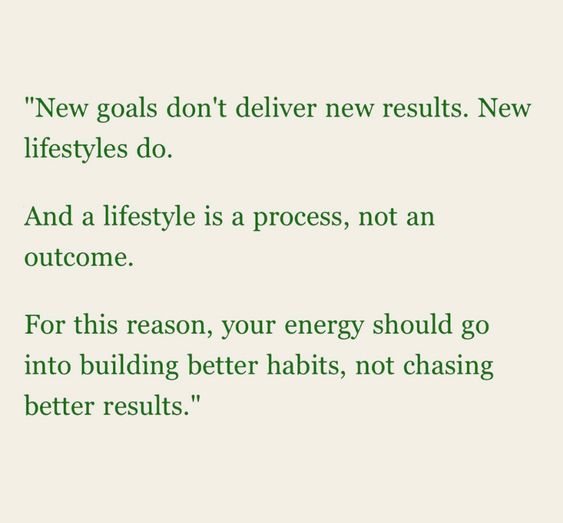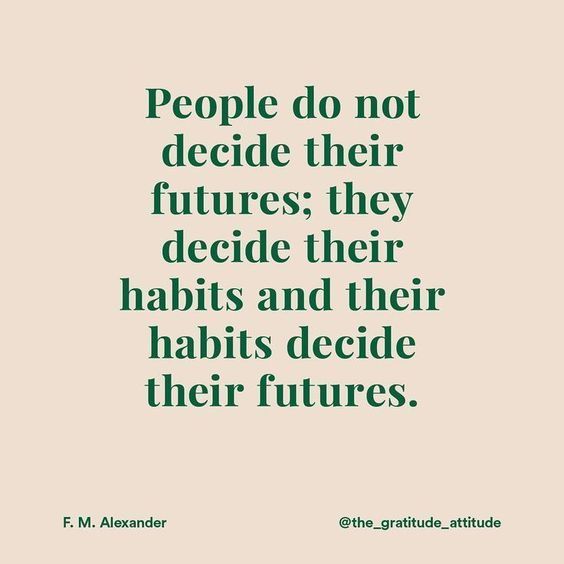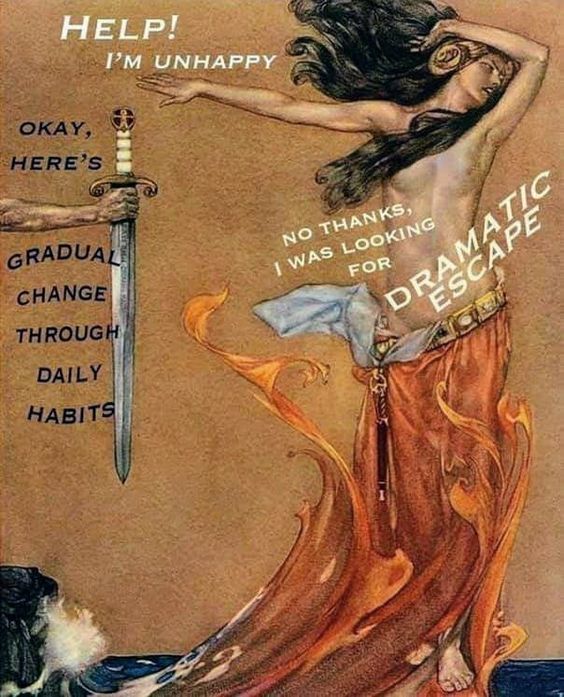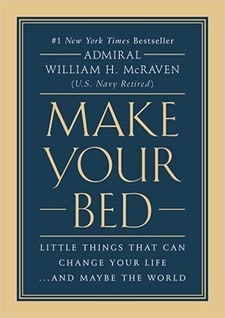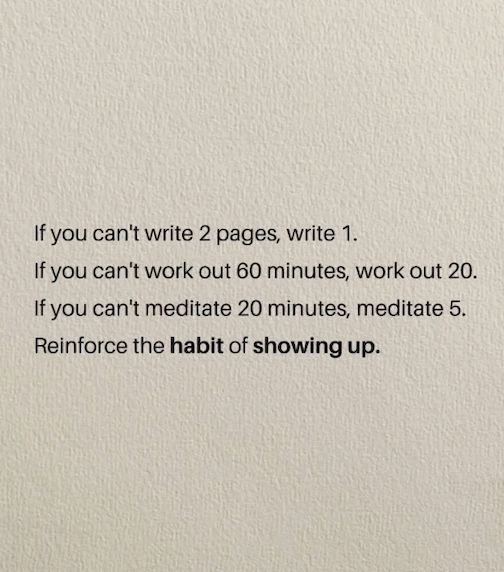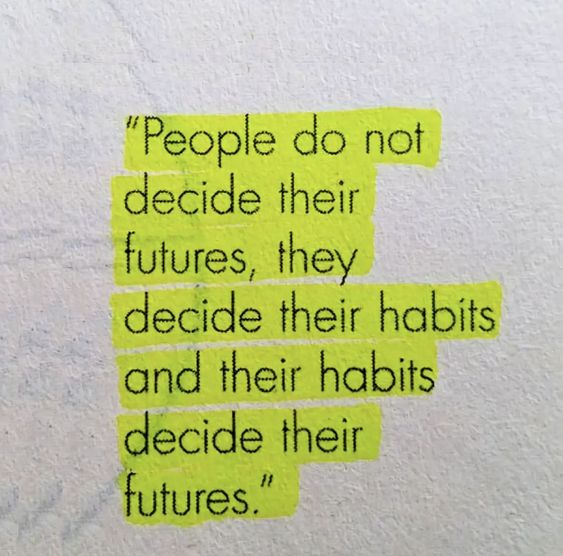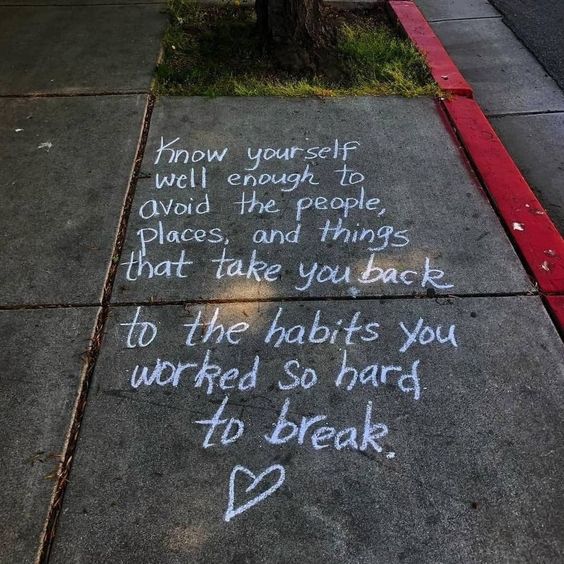“Two simple rules: (1) You get better at what you practice. (2) Everything is practice. Look around and you may be surprised by what people are “practicing” each day. If you consider each moment a repetition, what are most people training for all day long? Many people are practicing getting mad on social media. Others are practicing the fine art of noticing how they have been wronged. Still more have mastered the craft of making plans (but never following through). But, of course, it doesn’t have to be that way. What are you practicing?”
James Clear
“The producer of old age is habit: the deathly process of doing the same thing in the same way at the same hour day after day, first from carelessness, then from inclination, at last from cowardice or inertia. Habit is necessary; but it is the habit of having careless habits, of turning a trail into a rut, that must be incessantly fought against if one is to remain alive… one can remain alive long past the usual date of disintegration if one is unafraid of change, insatiable in intellectual curiosity, interested in big things, and happy in small ways.”
Edith Wharton
“Sometimes the rule is: You don’t have to finish, but you do have to start. And sometimes the rule is: You don’t have to start, but if you do, you have to finish. When building a personal habit, it might make sense to embrace the first rule. You don’t have to run all the way, every day, but you do have to get out of the house and start running. And when making promises to a group where trust matters, the second rule definitely applies.”
Seth Godin
“For the last ten years now I have kept a journal, using a counterintuitive yet effective method. It is simply this: I write less than I feel like writing. Typically, When people start to keep a journal they write pages the first day. Then by the second day the prospect of writing so much is daunting, and they procrastinate or abandon the exercise. So apply the principle of ‘less but better’ to your journal. Restrain yourself from writing more until daily journaling has become a habit.”
Greg McKeown, Essentialism (Page 78)
“Location has energy; time has memory. If you do something at the same time every day, it becomes easier and natural. If you do something in the same space every day, it becomes easier and natural.”
Jay Shetty, Think Like A Monk (Page 140)
“Every morning make some time for: (1) Thankfulness. Express gratitude to someone, some place, or something every day. This includes thinking it, writing it, and sharing it. (2) Insight. Gain insight through reading the paper or a book, or listening to a podcast. (3) Meditation. Spend fifteen minutes alone, breathing, visualizing or with sound. (4) Exercise. We monks did yoga, but you can do some basic stretches or a workout. Thankfulness. Insight. Meditation. Exercise. T.I.M.E. A new way to put time into your morning.”
Jay Shetty, Think Like A Monk (Page 128)
Make Your Bed [Book]
Book Overview: If you want to change the world, start off by making your bed. On May 17, 2014, Admiral William H. McRaven addressed the graduating class of the University of Texas at Austin on their Commencement day. Taking inspiration from the university’s slogan, “What starts here changes the world,” he shared the ten principles he learned during Navy Seal training that helped him overcome challenges not only in his training and long Naval career, but also throughout his life; and he explained how anyone can use these basic lessons to change themselves—and the world—for the better.
Post(s) Inspired by this Book:
12 William McRaven Quotes from Make Your Bed That’ll Change Your World
“If two people have the same goal, you know nothing about the similarity of their results. But if two people have the same daily habits, you can infer quite a bit about the similarity of their results. Your results are largely a byproduct of your habits.”
James Clear, Blog
“What you do on your ordinary days determines what you can achieve on your extraordinary days.”
James Clear, Blog
“The [String of Pearls] is probably the most important thing, motivationally, you could teach yourself. You just draw a string of pearls. There’s a line, then a circle, line, then a circle. Each one of those circles equals one action. But here’s the thing. Every action has the same value. I am the person that puts the next pearl on the string. That’s it. Just getting out of bed and doing what you have to do that day and not putting, like, a size value on the effort. They’re all the same size.”
Phil Stutz, Stutz
“It only takes five minutes to break the cycle. Five minutes of exercise and you are back on the path. Five minutes of writing and the manuscript is moving forward again. Five minutes of conversation and the relationship is restored. It doesn’t take much to feel good again.”
James Clear, Blog
“Most people act, not according to their meditations, and not according to their feelings, but as if hypnotized, based on some senseless repetition of patterns.”
Leo Tolstoy, A Calendar of Wisdom (Page 284)
